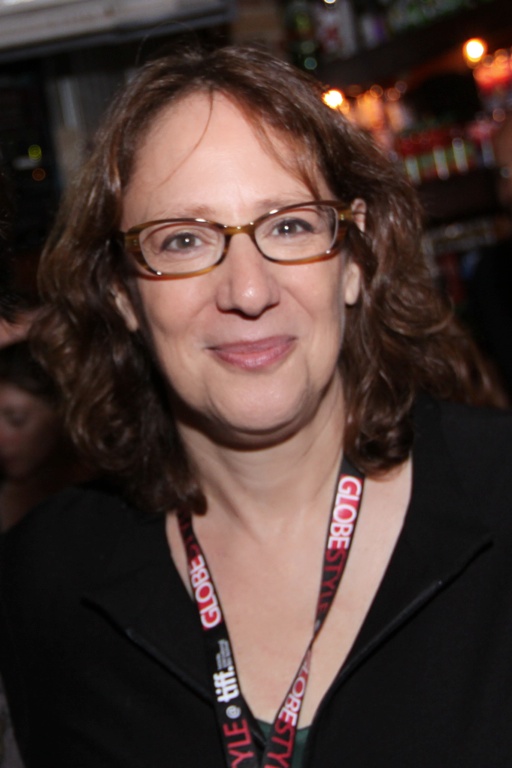Janet Pierson, the producer of the SXSW Film Conference and Festival, will make her first visit to Australia in August, attending a Screen Australia forum where she will talk about the event. In 2012, the influential festival screened 270 films (including 132 features) and attracted an audience of more than 68,000. She told IF Magazine about her views on the Australian industry and the changing role of the festival.
IF Magazine: How does Australian screen content compare to the US and other territories? Have you noticed particular strengths or weaknesses that should be addressed, or particular themes?
Janet Pierson: SXSW Film always pays close attention to Australian films. It's hard to reduce "Australian film" to a specific set of themes, but I would say that again and again we see a fearless, uncompromising sensibility.
There's definitely a real wave of fascinating, edgy filmmakers coming from the region. Genre films are incredibly strong, and filmmakers, many of which we've been able to show at SXSW, like Nash and Joel Edgerton (Blue Tongue Films), Justin Kurzel (Snowtown), Sean Byrne (The Loved Ones), Matthew Newton (Three Blind Mice), The Spierig Bros (Daybeakers), and Andrew Traucki (The Reef) are doing an amazing job at the vanguard, among many others. And of course just thinking about more of the Australian work we've been privileged to show: Daniel Nettheim (The Hunter), Ben C. Lucas (Wasted on the Young), Adam Blaiklock (Caught Inside) and Alex Munt (LBF).
They're unafraid to tackle controversy, unapologetically examining aspects of Australian culture and subverting stereotypes in ways that perhaps haven't been fully explored before, at least to our American eyes! This is even true for the great doc Scarlet Road which we were thrilled to present last year – it's an uncompromising look at sexuality and disability.
IF Magazine: Has there been a noticeable difference in the films show at SXSW since you were appointed in 2008? If so, why, and has this happened across the industry or is it due to changes at the festival?
Janet Pierson: I was a fan of SXSW’s programming before I came on for the 2009 festival and my only goal was to retain the quality. It was known for edgy DIY risk-taking fare coupled with strong docs, genre films, music films, and raunchy R-rated comedies liked Knocked Up. I didn’t make a conscious decision to change the programming and while we still follow the same general blueprint, the consensus seems to be that it’s continued to improve under my watch.
Some of it may be attributed to the increase in quality in independent filmmaking in the last several years – there’s just more work being made all the time. A lot of it is quite good, although brilliance is still rare. I’m also sure it's a combination of my sensibility and my extremely talented programming team. I work closely with Jarod Neece, Jim Kolmar, Claudette Godfrey and Rebecca Feferman and together, the whole is stronger than each individual part. We don’t program by committee, but each of us brings great strengths so we cover a lot of ground. It’s interesting how much we all agree on the films we love, but the disagreements we have are fascinating too. A lot of my job entails knowing when and when not to listen to the others. 🙂
IF Magazine: Is the role of festivals such as SXSW changing because of changes to film distribution/financing? (Eg. changes to mixing up of distribution windows, challenges indie films have of finding an audience at cinemas, less risk-taking by financiers in the current environment.)
Janet Pierson: Yes. The film business as we used to know it has changed dramatically. With more work and choices than ever before, festivals like SXSW play an even more vital role in curating and shining a light on the most striking films and filmmakers. We wade through thousands of films looking for just the right ones that will play well in our environment. Filmmakers need us to get attention on their work for the press, industry, and audiences. Sure, filmmakers can try and reach their audience directly but with the general culture suffering from media overload, our curation serves an important function.
We look for a mix. It’s important to us to present a range of work along economic and entertainment, and including risk-taking lines. Yes, there are tremendous challenges in the marketplace but our role is simple. We exist to connect talent with audience. And as long as filmmakers are figuring out ways to get the work done, we’ll provide the platform to connect and launch with the greater world.
The SXSW Film Festival will be held from March 8-16, 2013, in Austin, Texas.
Janet Pierson.


